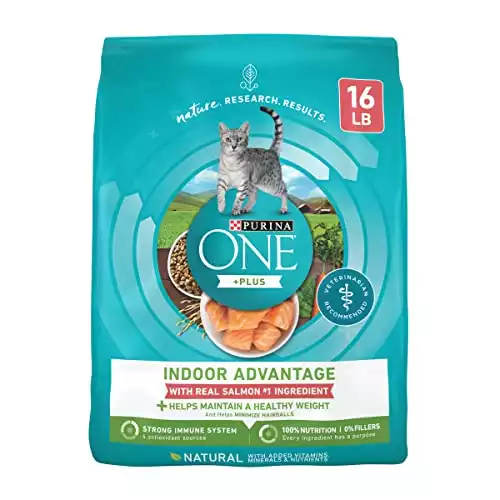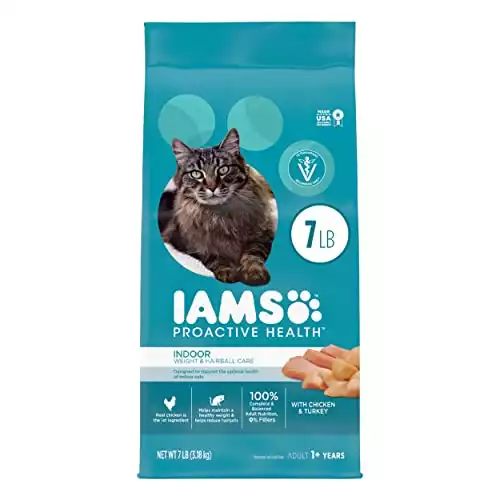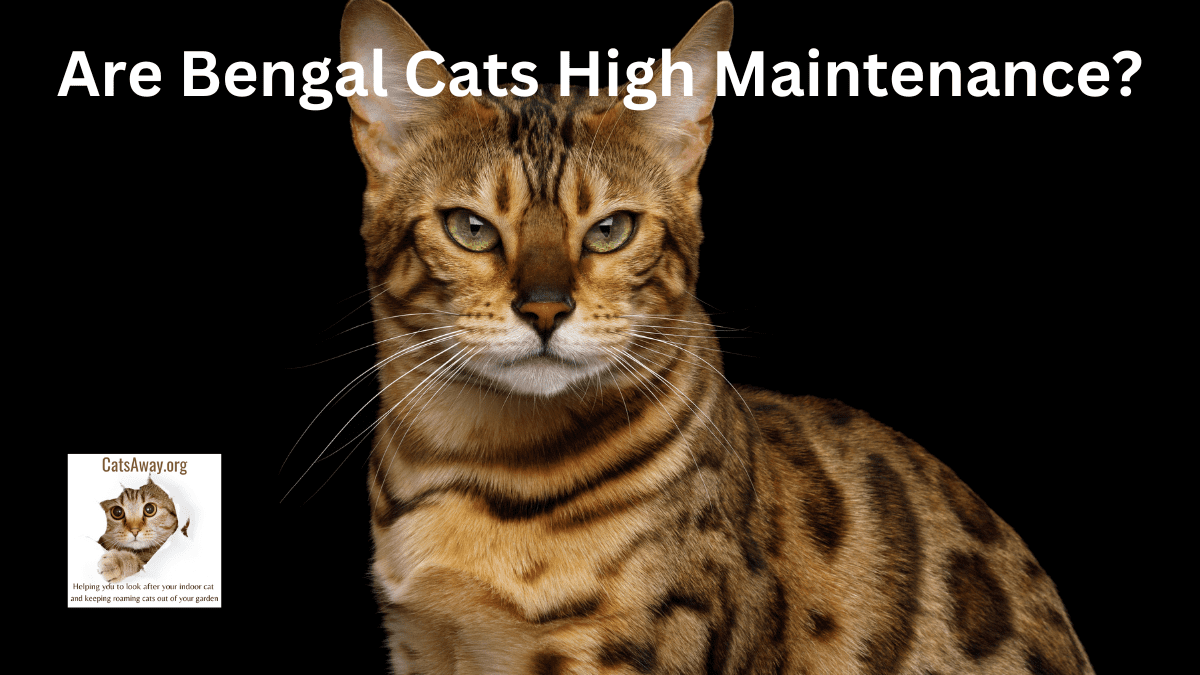Siberian cats are known for their majestic beauty and friendly nature. However, some owners may notice that their feline friend is meowing excessively and wonder what might be causing this behavior.
There are various reasons why a Siberian cat may meow so much – ranging from seeking attention to signaling a health issue.
Understanding the reasons behind excessive meowing can help cat owners address their pet’s needs and create a more harmonious living situation. In this article, we will explore some common causes for your Siberian cat’s constant meowing, as well as potential solutions to help you and your furry companion live in peace.
Understanding Cat Meowing
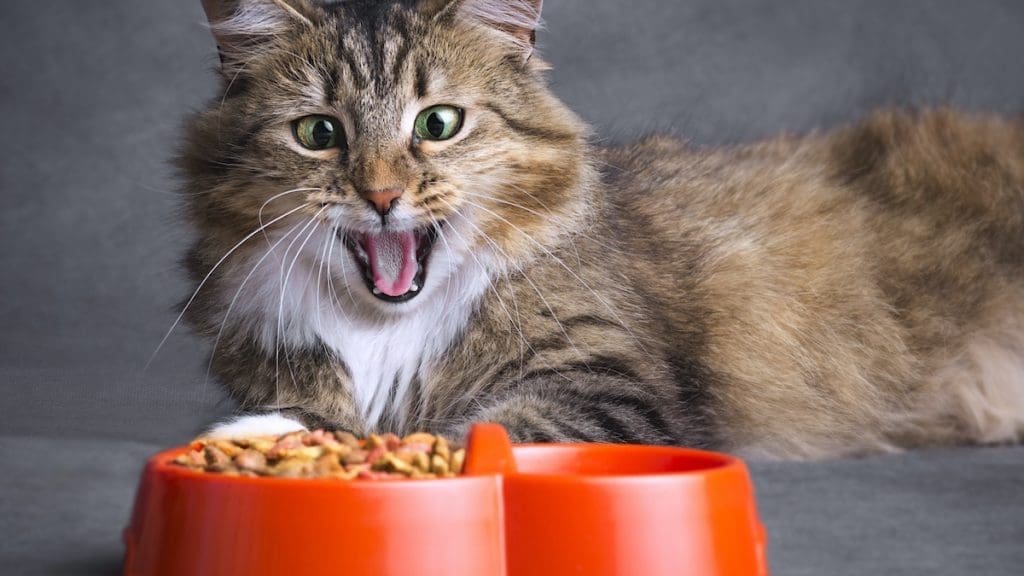
General Reasons for Meowing
Cats use meowing as a form of communication, which can serve various purposes. Each cat has its own unique set of vocalizations and can adjust these sounds according to their needs or desires. The reasons behind a cat’s meowing can range from seeking attention to expressing discomfort or even hunger.
- Attention seeking: Cats may meow to get your attention, especially when they want to play, be petted, or be fed. This is a learned behavior that is reinforced when we respond to their vocalizations, often leading to more meowing over time.
- Expressing discomfort or illness: Sometimes a cat will meow excessively when they are in pain or feeling uncomfortable. This may signify the presence of a wound, a broken bone, or an underlying health issue.
- Hunger: If a cat is persistently hungry and meowing for food, it may be a symptom of a medical condition such as hyperthyroidism, particularly if the cat is also losing weight. This condition tends to affect middle-aged to older cats and may come with other complications, like hypertension or kidney disease.
Innate Breed Traits
Some cat breeds are more vocal than others, leading to a natural inclination for more frequent communication through meowing. Siamese cats, for example, are known for their chatty nature and can be quite vocal in their interactions with their humans. Bengals are another breed that tends to communicate more than others and may meow to express their curiosity or excitement.
Siberian cats, while not necessarily known as a particularly vocal breed, may still exhibit excessive meowing if they become accustomed to having their needs met through vocal communication. This can develop into a persistent habit that may be difficult to break.
In summary, understanding cat meowing requires taking into account both the general reasons for cat vocalizations and the innate traits of specific breeds. By recognizing the context and individual personality of a cat, owners can better respond to their needs and address excessive meowing in a thoughtful manner.
Causes of Excessive Meowing
Behavioral Reasons
Excessive meowing in Siberian cats can be caused by various behavioral factors. One of the most common reasons is a cat’s reaction to stress or anxiety. Changes in their environment, such as moving homes or introducing new pets, can trigger stress and result in excessive meowing.
Cats that feel hungry or thirsty also tend to vocalize more. Make sure your cat has access to fresh water and food in appropriate amounts.
Another behavioral reason for excessive meowing can be a lack of physical stimulation or social interaction. Cats need regular playtime, exercise, and mental stimulation to avoid boredom and frustration. To address this, provide your cat with interactive toys, engage in play sessions, and offer opportunities for socialization with other pets.
Cats that have not been neutered or spayed may also meow excessively, especially during mating seasons, as they communicate their desires to potential mates.
Medical Reasons
Apart from behavioral factors, medical issues may also cause excessive meowing in Siberian cats. The first step to address this is to consult your veterinarian for a thorough examination of your cat.
A common medical reason for excessive meowing is pain or discomfort caused by various illnesses or injuries. Possible underlying conditions might include:
- Urinary tract infections: These infections can cause increased thirst, discomfort, and increased vocalization in cats, making it crucial to promptly handle.
- Kidney disease: Kidney problems may cause excessive thirst, weight loss, lack of appetite, and increased meowing due to discomfort or pain.
- Hyperthyroidism: An overactive thyroid can lead to increased hunger, weight loss, and elevated vocalizations.
- Hypertension: High blood pressure is often associated with excessive meowing, restlessness, and anxiety.
- Cognitive dysfunction: This condition, often termed ‘cat dementia,’ may lead to disorientation, confusion, and increased meowing, especially at night.
It is crucial to consult your veterinarian if you notice any additional symptoms or significant changes in your cat’s behavior to rule out any medical issues and provide the appropriate treatment and care. Remember, it’s always better to err on the side of caution when it comes to the health and well-being of your furry friend.
Dealing with Attention Seeking Meowing
Interacting with Your Siberian Cat
Siberian cats, like other breeds, may meow excessively when they are seeking attention from their humans. It is important to interact with your cat in a friendly and affectionate manner to address their needs and help reduce excessive meowing.
Make sure you play with your cat and ensure they get regular exercise to keep them mentally stimulated and physically active. Ideally this would include a cat exercise wheel or using toys such as dangling feather wands, laser pointers, or puzzle treat dispensers.
Offer your cat attention and affection throughout the day, but be mindful of their body language to know when they are ready for play. When your cat greets you, make sure to respond with a warm and friendly greeting. This will help your cat feel acknowledged and loved, possibly decreasing the need for attention-seeking meows.
Finding the Right Balance
While giving your cat attention is crucial, it’s important to find the right balance. If you constantly respond to your cat’s meowing, they may learn that vocalizing is an effective way to get what they want. To avoid reinforcing this behavior, try the following strategies:
- Distract your cat before they start meowing by engaging them in play or providing them with a treat while they’re quiet.
- Ignore excessive meowing and reward moments of silence with praise or treats to encourage calm behavior.
- Provide general enrichment to your cat’s environment, such as shelves for climbing and hiding spots, to encourage independent play and exploration.
Finding a balance between giving your Siberian cat the attention and affection they crave while not reinforcing attention-seeking meowing can lead to a much healthier and happier relationship for both you and your furry friend.
Caring for Your Siberian Cat’s Needs
Siberian cats are affectionate and energetic pets that require regular care to keep them healthy and happy. In this section, we will discuss two important aspects of looking after your Siberian cat: food and water, and litter box maintenance.
Food and Water
To maintain your Siberian cat’s health, it is crucial to provide them with the proper nutrition. Offer them a balanced diet of high-quality cat food, either wet or dry, that has been specifically formulated for indoor cats. Remember to adjust the amount of food according to your cat’s age, size, and activity level.
-
 5.0$56.90 ($3.56 / Pound)More info
5.0$56.90 ($3.56 / Pound)More info16lb bag
This high-protein nutritional weight control indoor cat food has 10 percent less fat than Purina ONE tender selects blend. Made with Salmon it helps your indoor cat maintain a healthy weight
03/09/2024 10:45 pm GMT -
 5.0$16.89 ($2.41 / lb)More info
5.0$16.89 ($2.41 / lb)More info7lb bag
Chicken is the main ingredient in this protein-rich cat food to help support strong muscles and to provide healthy energy for play.
It's made with with l-carnitine to help your indoor cat either lose weight or maintain a healthy weight.
Also includes beet pulp which helps reduce hairballs.
03/09/2024 09:35 pm GMT -
 5.0$46.98 ($4.27 / Pound)More info
5.0$46.98 ($4.27 / Pound)More info11lb bag
Created specifically to keep your indoor cat fit and healthy, this high protein cat food is packed with the chicken cats crave to help build and maintain lean muscle mass.
03/09/2024 09:43 pm GMT
Water is equally as important as food for your cat’s well-being. Make sure to provide fresh water in a clean water bowl daily. Cats can be quite particular about the cleanliness of their water, so it’s a good idea to wash the bowl regularly. Additionally, consider placing multiple water bowls around your home to encourage your Siberian cat to drink more.
Litter Box Maintenance
A clean and well-maintained litter box is essential for your Siberian cat’s comfort and hygiene. Place the litter box in a quiet, low-traffic area of your home to offer your cat some privacy. Check the litter box daily and scoop out any waste, disposing of it in a sealed bag or container.
At least once a week, empty the entire litter box and clean it thoroughly with warm water and mild soap. Make sure to dry the box completely before refilling it with fresh litter. Maintaining a clean litter box will not only keep your home smelling fresh but will also encourage your cat to use it consistently and help prevent behavioral issues related to a dirty litter box.
By taking care of these essential aspects of your Siberian cat’s routine, you will ensure their well being and happiness in your home.
Enriching Your Cat’s Environment
Creating an Engaging Space
One of the reasons your Siberian cat may be meowing excessively could be due to boredom or lack of engagement in their environment. To help alleviate this, focus on creating an engaging space for your cat. Provide enrichment opportunities for both their physical and mental well-being. Some suggestions include:
- Interactive toys: Choose toys that encourage your cat to be active and mentally stimulated, such as puzzle feeders or toys they can chase.
- Cat trees and perches: Cats enjoy vertical spaces to climb and observe their surroundings. Cat trees and perches provide an opportunity for them to satisfy this desire.
- Catio: If possible, create a safe outdoor cat enclosure, also known as a catio, for your cat to explore and experience the outdoors safely.
- Window perches: Even if your cat does not have access to a catio, providing a comfortable window perch will enable them to watch birds and other outdoor activities, reducing boredom.
The Importance of Consistency
Consistent routines are important for cats, including Siberians who may be prone to feeling scared or experiencing separation anxiety. Establishing regular feeding times, play sessions, and other interactions can help your cat feel more secure in their environment. Consider the following points of consistency:
- Regular feeding times: Set specific times for feeding your cat, which will help them understand when to expect food and reduce excessive meowing. Learn how to stop free feeding cats.
- Consistent play sessions: Schedule playtime every day to help your cat burn energy and reduce potential stress or anxiety.
- Night routines: Many cats, including Siberians, may experience increased vocalization at night. Establishing a consistent bedtime routine, like a short play session followed by a small meal, can help them associate nighttime with settling down.
By incorporating these suggestions and maintaining consistency in your cat’s life, you can help create an enriching and stimulating environment which can reduce excessive meowing in your Siberian cat.
When to Consult a Veterinarian
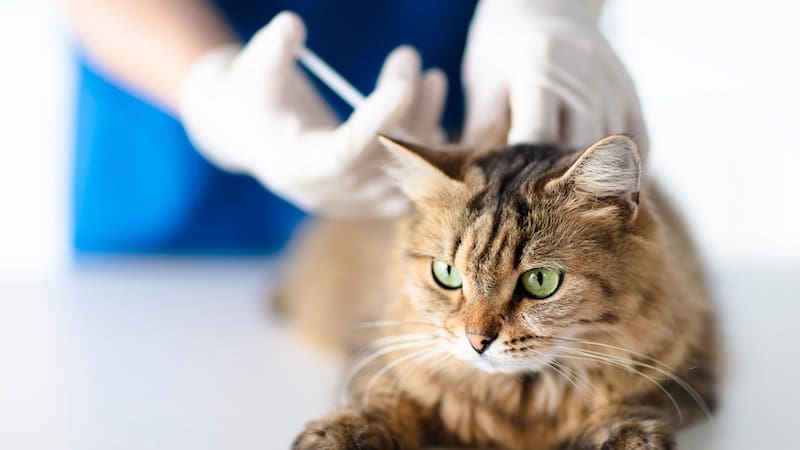
Signs of a Potential Health Issue
Though frequent meowing can be normal behavior for some Siberian cats, there are instances when excessive meowing might be a signal for an underlying health issue. As a cat owner, it’s important to be aware of these signs to determine if a veterinarian visit is necessary. Some common indicators that your cat may be experiencing a health problem include:
- Changes in behavior: If your cat’s meowing is accompanied by other unusual behaviors, such as increased aggression or withdrawal, this may indicate distress or disorientation.
- Urinating or defecating outside the litter box: Inappropriate urination in cats can be a sign of a medical condition or stress.
- Appetite changes: If your cat is eating significantly more or less than usual while meowing excessively, a medical issue might be the cause.
- Old age: Senior cats are more prone to developing medical conditions, such as deafness or cognitive dysfunction, which can lead to disorientation and increased vocalization.
Preparing for a Vet Visit
If you suspect that your cat’s excessive meowing is due to a health issue, it is essential to schedule a visit with your veterinarian. To help your vet in diagnosing the issue, prepare the following information before the appointment:
- Detailed observations: Note down the frequency, duration, and context of your cat’s meowing. Mention if their meowing occurs mostly during specific times of the day or in certain situations.
- Behavioral changes: Record any accompanying behavioral changes, such as appetite, sleep patterns, or interaction with family members.
- Cat’s age and medical history: Ensure that you know your cat’s age, as health issues may differ between young, adult, and senior cats. Also, provide any relevant medical history, including past illnesses or injuries.
During the appointment, your veterinarian will perform a thorough examination of your cat, and may recommend further tests if necessary. By staying observant and proactive, you can increase the chances of a timely diagnosis and treatment, ensuring your cat’s health and happiness.
Conclusion
Siberian cats, like most other cats, have their unique characteristics and reasons for meowing. The reasons behind the excessive meowing in Siberian cats can vary from seeking attention, hunger, thirst, stress, pain, illness, social interaction, or cognitive dysfunction.
In some cases, breed differences may also contribute to their vocalizations. While Siberian cats are generally known for being affectionate and social, their meowing might be their way of expressing these traits and communicating with their human family members.
It is essential for pet owners to monitor their Siberian cat’s meowing and be in tune with their needs. By doing so, they can ensure a healthy and happy co-existence. If the excessive meowing continues despite addressing the potential causes, it might be wise to consult with a veterinarian who can help determine if there are underlying health issues.
Remember to be patient and understanding with your Siberian cat as they meow their way through life. Their vocalizations are merely their way of communicating, and addressing their needs will create a harmonious relationship between you and your beloved feline companion.
Frequently Asked Questions
Are Siberian cats more talkative than other breeds?
Siberian cats are known to be more vocal than some other cat breeds. However, each cat has its own personality, and the degree of chattiness can vary from one individual to another.
What causes a Siberian cat to meow frequently?
There are several possible reasons for a Siberian cat to meow frequently. These can include hunger, litter box issues, seeking attention, looking for a mate, or feeling stressed or frightened.
Do Siberian kittens meow a lot?
Kittens generally meow more than adult cats. Siberian kittens may meow to communicate with their mothers, to express their needs, or because they are adjusting to their new environment. As they grow and develop into adult cats, the frequency of their meowing often decreases.
How can I understand my Siberian cat’s meows?
Recognizing the different meows of a Siberian cat can help in understanding their needs. A cat’s meow may change in pitch, volume, or frequency to indicate various feelings or requests such as hunger, comfort, or wanting attention. Paying attention to your cat’s body language and behavior can provide additional context to understand their meows.
Can I train my Siberian cat to meow less?
While it’s not guaranteed that every cat will respond to training, some Siberian cats can be trained to meow less by reinforcing quiet behavior. This may involve ignoring excessive meowing and rewarding silence with treats or praise. It’s important to also ensure that the cat’s basic needs are met and that they are not meowing out of discomfort or distress.
Are there health issues related to excessive meowing in Siberian cats?
Excessive meowing can sometimes be an indicator of an underlying health issue. If your Siberian cat displays a sudden increase in meowing, or if it’s accompanied by other signs of illness or behavioral changes, it’s a good idea to consult with a veterinarian to rule out any medical problems.


